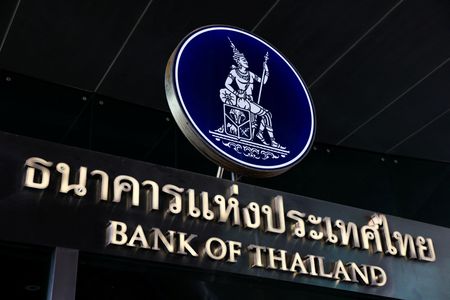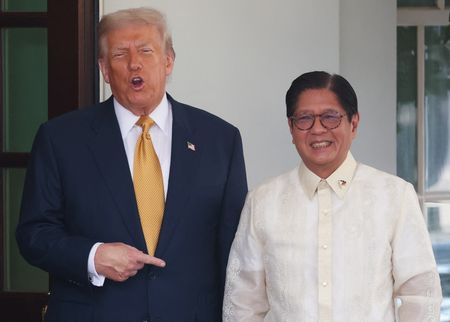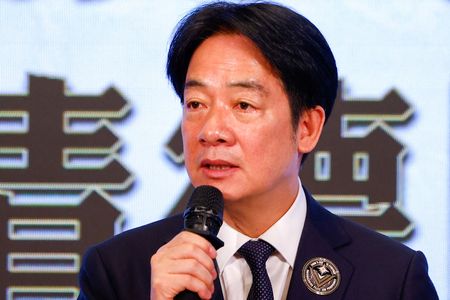By Orathai Sriring and Kitiphong Thaichareon
BANGKOK (Reuters) -Thailand’s cabinet gave its approval on Tuesday for Vitai Ratanakorn to take over as the next central bank governor and revive an economy in the doldrums with limited monetary policy room to work with.
The appointment of Vitai, 54, the president and CEO of the Government Savings Bank, would be subject to royal approval before he starts a five-year term on October 1. He was picked over central bank veteran and deputy governor Roong Mallikamas.
Vitai would succeed Sethaput Suthiwartnarueput, who has reached retirement age. The cabinet approval for Vitai was announced by government spokesperson Jirayu Huangsap.
The Bank of Thailand’s next governor faces a big challenge with an economy shackled by tepid consumption, weak lending, stubbornly high household debt and steep U.S. tariffs.
Vitai has a master’s degree in finance from Drexel University in the United States, as well as degrees in economics and law from Thailand’s Chulalongkorn and Thammasat universities.
Some analysts expect his appointment to improve the working relationship of the central bank and the Pheu Thai party-led government, which has previously clashed with Sethaput over interest rates and monetary policy settings.
“There should be no issue of conflict,” said Natapon Khamthakrue, an analyst at Yuanta Securities.
“Vitai’s approach is likely to be more relaxed compared to someone from the central bank, but making significant adjustments within the central bank might not be easy due to existing regulations.”
However, Natapon cautioned that “there needs to be careful consideration to avoid the perception of excessive government interference”.
Last year, Prime Minister Paetongtarn Shinawatra, before she was premier, said central bank independence stood in the way of solving economic problems.
‘OUTSIDE-IN PERSPECTIVE’
In a social media post earlier this month, Vitai said he has acted independently and without influence from any groups in his career, prioritising the public interest.
Last month, he said there was a need to cut interest rates deeply to support a stagnant economy.
The central bank late last month left the key interest rate unchanged, underlining the need to save some policy ammunition after three cuts from October that brought the key rate to 1.75%, the lowest in over two years. The next rate review is August 13.
Kobsidthi Silpachai, head of Capital Markets Research at Kasikornbank, said Vitai should help coordinate monetary policy with government policy.
Finance Minister Pichai Chunhavajira said the same, adding the top priority should be solving Thailand’s debt issues.
“The most urgent and biggest issue is debt,” he told reporters.
“Regarding monetary policy, the central bank has independence, but it must work to support policies that align with driving the economy and government policy.”
Chamadanai Marknual, an economist at Krungthai Bank, said the new governor would likely uphold the central bank’s independence and as an outsider, Vitai could push for more preemptive policy.
“Having someone who has never worked at the central bank before may have an outside-in perspective,” Chamadanai said.
“There is very limited room for fiscal measures, so adopting relaxed policies might be the right answer.”
(Reporting by Orathai Sriring, Kitiphong Thaichareon, Thanadech Staporncharnchai, Panarat Thepgumpanat and Chayut Setboonsarng; Editing by Martin Petty and Saad Sayeed)









